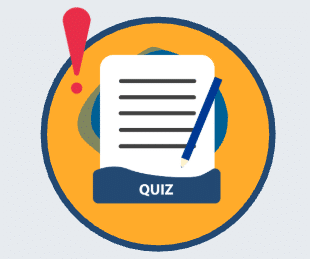The French Education System: From Preschool to University
The French education system is structured in several distinct stages. In France, schooling is compulsory from ages 3 to 16. Students progress through preschool, elementary school, middle school, high school, and then on to higher education.
This article explores each stage of the French education system with clear, easy-to-understand explanations.
Preschool: The First Step (Ages 3-6)
Preschool serves children from ages 3 to 6. Since 2019, all children must attend school starting at age 3. In preschool, children learn independence and how to interact with others. They are introduced to letters of the alphabet and numbers. They listen to their teacher and learn to follow classroom rules.
Activities are varied and engaging: drawing, painting, singing songs, playing with building blocks, and more.
French preschool has three levels:
- Petite section (age 3),
- Moyenne section (age 4),
- Grande section (age 5).
By the end of grande section, children can write their first name and recognize several letters.
Elementary School: Learning the Basics (Ages 6-11)
Elementary school lasts 5 years: CP, CE1, CE2, CM1, and CM2. This level is also called “primary school « (école primaire). In CP, 6-year-old children learn to read their first words and write. This is a crucial stage in their academic journey. The main subjects are French and mathematics.
In French class, they read short stories and learn basic spelling. In mathematics, they learn addition and subtraction. Students also study history, geography, science, and a foreign language (typically English).
Schools organize field trips such as museum visits, educational farms, and theatrical performances. These activities make learning enjoyable and engaging.
Middle School: Becoming Independent (Ages 11-15)
Middle school serves students from ages 11 to 15 across 4 grade levels: 6ème, 5ème, 4ème, and 3ème. This marks the beginning of secondary education. The curriculum expands significantly with more subjects than before: French, mathematics, history-geography, science, two foreign languages, physical education, and arts.
Middle school helps students develop independence. They learn to organize their personal work, give presentations, and collaborate in groups. At the end of 3ème, all students take the National Diploma Exam (DNB – Diplôme National du Brevet). This is their first major official exam, featuring both written tests and an oral examination.
High School: Specializing (Ages 15-18)
High school lasts 3 years: seconde, première, and terminale. There are three types of high schools:
- General high school (Lycée général): prepares students for university,
- Technical high school (Lycée technologique): focuses on specialized technical fields,
- Vocational high school (Lycée professionnel): provides hands-on training for specific trades.
In première and terminale of general high school, students choose specializations from 13 options: mathematics, science, languages, history-geography, arts, and others. This 2019 reform replaced the former L, ES, and S academic tracks. To enter university, students must obtain the baccalauréat (commonly called the “bac”).
University and Higher Education (Age 18+)
After obtaining the bac, students can pursue higher education. At university, the degree structure follows:
- License/Bachelor’s degree (3 years),
- Master’s degree (2 years),
- Doctorate (3+ years).
University life extends beyond academics. Students can join student associations, participate in sports, or engage in cultural projects. Internships in companies are often required and provide valuable preparation for professional life.
France also offers alternative higher education paths: BTS (2-year technical degrees), IUT (2-year university technology institutes), preparatory classes for competitive exams, and prestigious grandes écoles. These specialized programs prepare students for specific career fields.
Tips for Success in French Education
Here are 3 essential tips for academic success in France:
- Master the French language: This is crucial for understanding coursework and excelling in school or university,
- Actively participate in class: Listen attentively to teachers and don’t hesitate to ask questions when something isn’t clear,
- Leverage available resources: Make use of libraries, educational websites, and online courses to supplement your learning.
From preschool to university, each stage of French education develops competent, independent, and well-rounded citizens. Want to learn more about life in France and improve your French language skills? Join La French Zone today!


